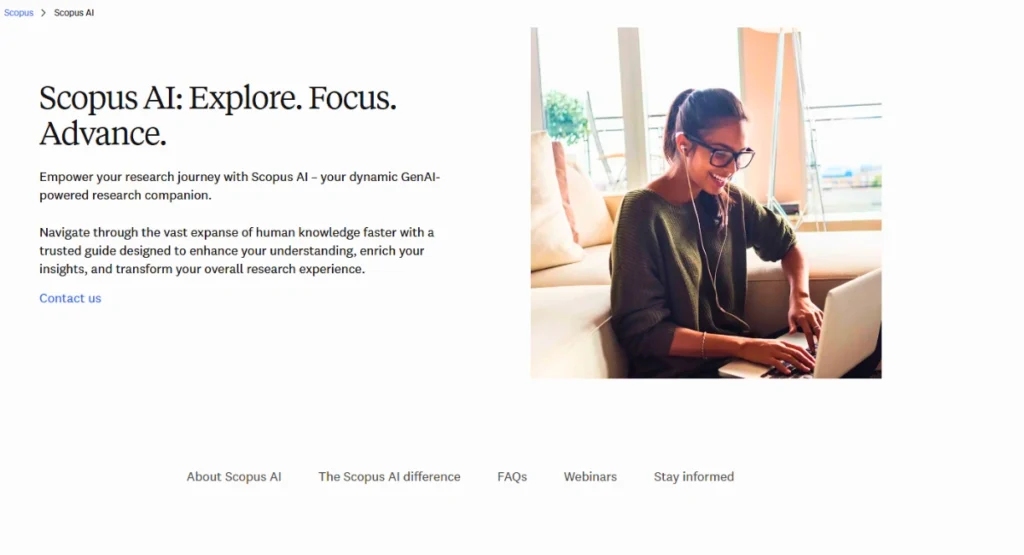Scopus AI
Vista Vibrante Verdict
Features
Accessibility
Compatibility
User Friendliness
What is Scopus AI?
Scopus AI is a generative research assistant seamlessly embedded into Elsevier’s Scopus database. The tool utilizes RAG-fusion and large language models (LLMs) to transform natural language queries into structured overviews, complete with verified citations and visual concept maps.
Moreover, it also offers features like expert search, new themes, and foundational document identification, allowing researchers to quickly comprehend complex themes, find out literature gaps, and explore leading authors. Moreover, it ensures GDPR compliance, making it an ideal tool for academic research and discovery.

Scopus AI Summarized Review | |
Performance Rating | A+ |
AI Category | Academic Research Assistant & Literature Mapping Tool |
AI Capabilities | Natural-language query processing |
Pricing Model | Contact the tool’s team |
Compatibility | Web-based |
Accuracy | 4.5 |
Key Features
The key features of Scopus AI include:
- Topic & Expanded Summaries
- Copilot Query Engine
- Interactive Concept Maps
- Foundational Paper Highlights
- Academic Expert Identification
- Emerging Themes Detection
- Multi-language Query Support
- Responsible AI Framework
Who Should Use Scopus AI?
- Academic Researchers: Quickly synthesize complex topics, identify gaps, and discover foundational literature across thousands of journals.
- Graduate Students: Speed up thesis and dissertation work with trusted summaries, expert identification, and concept mapping tools.
- University Librarians: Help faculty and students by guiding efficient research using AI-enhanced topic and literature exploration.
- Research Supervisors: Evaluate student work and recommend key literature using AI-curated insights and emerging research themes.
- Policy Analysts: Find evidence-based studies, track emerging trends, and identify domain experts for informed policy recommendations.
Pricing & Plans
Requires a Scopus subscription. Scopus AI is an integrated add-on available worldwide to existing customers. No separate pricing has been disclosed.
Pros & Cons
Pros
- Gives reliable, citation-backed summaries
- Offers intuitive concept visualizations
- Easily identifies top authors and core papers
- Supports complex, multi-language queries
- Strong transparency and responsible AI practices
Cons
- Requires a paid Scopus subscription
- Focuses on content from within Scopus only
- Niche queries may return limited results
- It might be overwhelming for new users or beginner researchers
Final Verdict
Overall, we found Scopus AI an incredible and well-integrated research tool assistant that speeds up literature discovery and mapping. It offers authentic and reliable summaries backed by citations and helps identify leading authors and papers.
While accessible only to Scopus subscribers, its AI capabilities, rooted in trusted data, make it an indispensable tool for researchers and librarians conducting serious academic inquiry.
FAQs
Is Scopus AI standalone or part of Scopus?
- It is built into the Scopus platform and requires a Scopus subscription to access.
Can it handle non-English queries?
- Yes, its copilot supports foreign-language queries and translates them automatically into English.
Does it cite sources?
- Yes, the tool allows all summaries to include direct references and confidence indicators.
